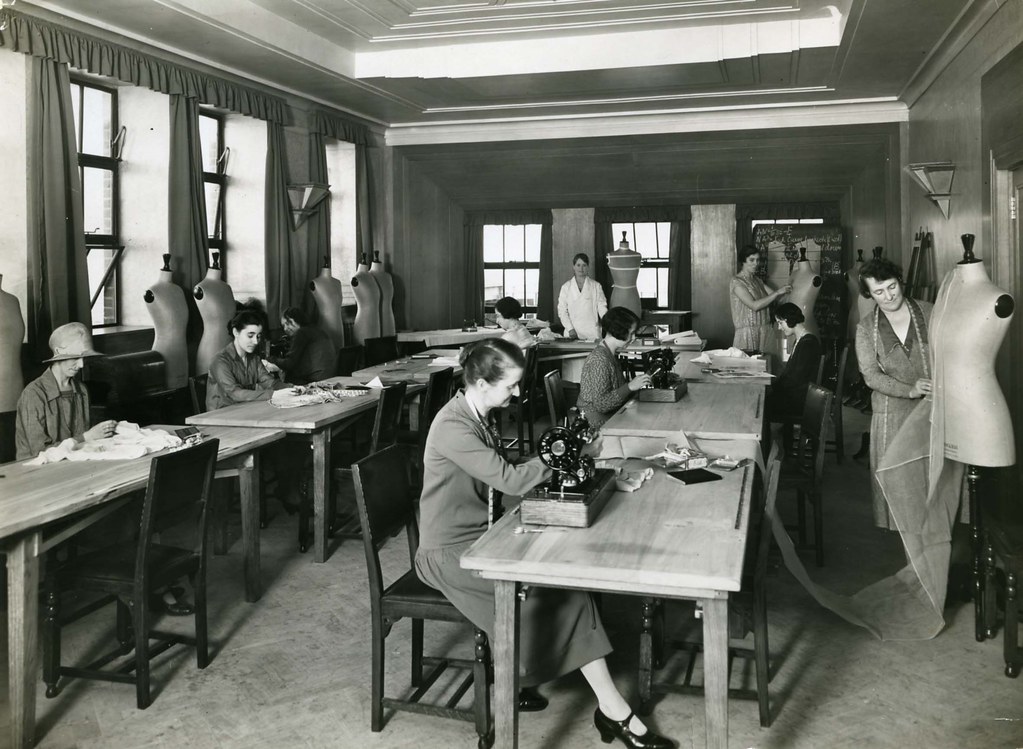A dear friend had a note pad in her apartment that read " the only domestic thing about me is that I live in a house." It is a pretty funny line.
For most of us who grew up in the 1960's and 70's we saw the teaching of home economics in the schools as a dreadful retrograde tool to keep women out of the marketplace and tied to home.
For some perverse reason I have been reading books on the teaching of what used to be called Home Science, Home Economics or Domestic Science since I was in my early teens. I was fortunate that my local library had a pretty good collection if such books in
the stacks. I still don't quite understand why I was so drawn to those musty books on child rearing and home care from the earliest years of the 20th century. In my teens I loved seeing how the world depicted in those books seemed so different from my own.
What I have come to learn in my reading over the years is that rather than being a tool of suppression of women Home economics was founded by feminists to elevate the position of women and to improve their education. Home economics was an offshoot of what we might think of as Life Sciences as applied in the home setting. I have come to admire the women who founded the Good housekeeping Institute to ensure that all milk sold is healthy and does not spread disease. (TB was often spread through milk from contaminated cows). I admire the women who worked to make sure that all women, including poor ones, had the ability to earn an income.
The women who were the pioneers of the Home Economics movement started the movement that helped to eventually create the FDA and the EPA. Standards for healthy foods, truth in food labeling, truth in drug labeling all comes from these women.
The women who were the pioneers of the Home Economics movement started the movement that helped to eventually create the FDA and the EPA. Standards for healthy foods, truth in food labeling, truth in drug labeling all comes from these women.
Yesterday I found this truly excellent essay about the history of the Home Economics movement in the United States. You will recognize some of the cast of characters from the abolitionist movement and from the women's suffrage movement.
Enjoy the read.



Comments
Post a Comment
I love hearing from my readers. I moderate comments to weed out bots.It may take a little while for your comment to appear.